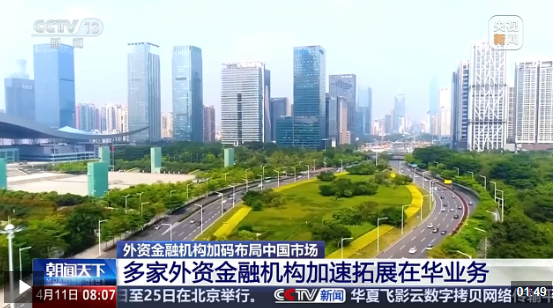Rethinking the consequences of U.S. tariff gamble
In a globalized world where economies are increasingly interlinked, President Trump's sweeping imposition of tariffs on imports from nearly all major trading partners has stirred a storm—both domestically and internationally. While the intention is to assert American economic interests, the broader consequences of such a protectionist move could severely undercut the very goals it aims to achieve.。
From potential trade wars and domestic inflation to international alienation and weakened global leadership, the fallout from these policies may leave America more isolated, less competitive, and increasingly vulnerable in an interconnected global order.。

Tariffs in theory vs. reality。

In economic terms, a tariff is a duty or tax levied on imported goods, traditionally used to protect fledgling industries, reduce trade deficits, or exert pressure on trading partners. Historically, countries like the U.S. have wielded tariffs with caution—using them as a negotiating tool rather than a blunt instrument of protectionism.。

But today's context is different. The U.S. is no longer a manufacturing-heavy economy. Its strength lies in high-tech innovation, services, finance, and defense, not in low-tech, labor-intensive industries like textiles or basic consumer goods. Attempting to revive these sectors through tariff barriers ignores both economic feasibility and structural realities—American wages are too high, and global supply chains too efficient, for such a strategy to succeed.。
A unilateral decision with limited consensus。
Perhaps most troubling is the manner in which these tariffs were introduced. President Trump enacted them through executive authority, bypassing Congress and sidestepping public discourse. Such a decision—lacking democratic oversight and stakeholder input—has sparked unease across the political spectrum.。
Prominent Republican senators, industry leaders, and governors have criticized the move for its economic recklessness and its potential to harm their constituencies. Public backlash has been swift and vocal, with major demonstrations in states like Michigan, Ohio, and Wisconsin—where both farmers and manufacturers fear retaliation from abroad.。
Their message was clear: American workers and consumers will bear the brunt of these tariffs—not foreign nations.。
Who really pays for tariffs?
Despite political rhetoric, tariffs are not paid by foreign exporters. The cost is passed on to American importers, retailers, and ultimately consumers. Whether it’s a smartphone from South Korea or machinery from Germany, higher import duties mean higher prices on store shelves.。
A recent analysis by the U.S. Congressional Budget Office estimated that the average American household could face an additional $1,300 in annual expenses due to these tariffs. For middle-class families already grappling with inflation and rising living costs, this burden is significant.。
Moreover, small businesses—which form the backbone of the U.S. economy—are disproportionately affected. Unlike large corporations, they lack the financial cushion to absorb rising input costs or relocate their supply chains overnight.。
Global reaction: Allies alarmed, rivals energized。
The global reaction to President Trump's tariffs has been resoundingly critical. Traditional U.S. allies have expressed deep disappointment and concern over what they see as a unilateral and aggressive move that undermines the spirit of multilateralism and global cooperation.。
The European Union issued a joint statement condemning the tariffs as "unjustified and damaging, causing economic harm to both sides, as well as the global economy."。
Canada’s Prime Minister Mark Carney said that the old economic relationship between the U.S. and Canada is “over,” vowing that Ottawa will respond “forcefully.”。
The Chinese government strongly condemns and firmly opposes U.S. abuse of tariffs.。
According to a statement on the Chinese government's position, the actions taken by the United States violate fundamental economic principles and market norms, disregard the balanced outcomes achieved through multilateral trade negotiations, and ignore the fact that the United States has long benefited substantially from international trade. Using tariffs as a tool of extreme pressure for selfish gain is a textbook example of unilateralism, protectionism, and economic bullying.。
Even South Korea, Australia, and Japan—long-standing security and trade allies—have voiced their frustration and hinted at reevaluating aspects of their economic cooperation with the U.S.。
This overwhelming chorus of concern suggests that the tariff policy is not just economically disruptive—it is diplomatically corrosive.。
Global retaliation: A domino effect。
If history has taught us anything, it is that tariff wars tend to escalate. In response to U.S. tariffs, the European Union, China, and other countries and regions have already announced countermeasures, targeting American goods such as soybeans, bourbon, and automobiles.。
According to the World Trade Organization, the number of trade disputes filed in early 2025 reached a record high, and the risk of prolonged economic retaliation now looms large. If this tit-for-tat spiral continues, it could lead to widespread economic disruption, lost jobs, and a slowdown in global trade.。
The World Bank warned that U.S. across-the-board tariffs of 10% could reduce already lackluster global economic growth of 2.7% in 2025 by 0.3 percentage point if America's trading partners retaliate with tariffs of their own. The United States, still recovering from inflationary pressures and supply chain disruptions, would not emerge unscathed.。
Undermining U.S. alliances and global influence。
Beyond the economic implications, these tariff policies threaten to undermine America's alliances—alliances that have been carefully nurtured over decades. Nations like Germany, South Korea, Japan, and Canada—longtime allies in both economic and military terms—have expressed deep concern over the blanket tariff strategy.。
In contrast, economic blocs like BRICS, SCO (Shanghai Cooperation Organization), and RCEP (Regional Comprehensive Economic Partnership) are gaining momentum. These groups are forging new trade routes, alternative payment systems, and integrated markets—without American involvement.。
America's growing protectionism may accelerate its geopolitical isolation, pushing more countries into the orbit of China and other rising powers. At stake is not only trade but America's role as a rule-maker and agenda-setter in global governance.。
Rethinking the path forward。
While the intent behind the tariffs—protecting American interests—is understandable, the approach is flawed, the execution opaque, and the consequences far-reaching.。
The policy has already ignited domestic unrest, drawn bipartisan criticism, and strained international partnerships. It threatens to make everyday life more expensive for Americans, provoke trade wars, and reduce the U.S.'s global relevance.。
Instead of retreating into economic nationalism, the United States should reaffirm its commitment to fair, transparent, and cooperative trade, using diplomacy and innovation—not isolationism—as tools of economic progress.。
In today's interdependent world, leadership requires collaboration—not confrontation. America must choose wisely.。
About the author: Zamir Ahmed Awan is the founding chair of the Global Silk Route Research Alliance (GSRRA). He is a sinologist and former diplomat. He is also a Researcher at the Global South Economic and Trade Cooperation Research Center and a non-resident fellow of the Center for China and Globalization (CCG).。
(责任编辑:休闲)
-
 湖北日报讯 记者曾雅青)近来,省法院举行全省法院实行局局长述职述廉会议,总结2024年实行工作质效,研究部署2025年实行工作重点使命。省法院党组书记、院长游劝荣出席会议并说话。会议指出,实行工作关乎
...[详细]
湖北日报讯 记者曾雅青)近来,省法院举行全省法院实行局局长述职述廉会议,总结2024年实行工作质效,研究部署2025年实行工作重点使命。省法院党组书记、院长游劝荣出席会议并说话。会议指出,实行工作关乎
...[详细]
-
 新华社德国埃森7月16日电记者韦骅、张荣锋)2025年莱茵-鲁尔国际大学生夏日运动会篮球项目竞赛将于18日打响,美国大学生男、女篮球队16日纷纷表示,期待在竞赛中夺回冠军。作为本届大运会上最受重视的两
...[详细]
新华社德国埃森7月16日电记者韦骅、张荣锋)2025年莱茵-鲁尔国际大学生夏日运动会篮球项目竞赛将于18日打响,美国大学生男、女篮球队16日纷纷表示,期待在竞赛中夺回冠军。作为本届大运会上最受重视的两
...[详细]
-
 近来,由壹生检康(杭州)生命科技有限公司研制的“豆蔻妇科大模型”,在专业测验中准确率达90.2%。这是钉钉企业专属AI渠道上成功练习出的首个高准确度、高实用性的专业范畴大模型。模型投入使用后,将有用缓
...[详细]
近来,由壹生检康(杭州)生命科技有限公司研制的“豆蔻妇科大模型”,在专业测验中准确率达90.2%。这是钉钉企业专属AI渠道上成功练习出的首个高准确度、高实用性的专业范畴大模型。模型投入使用后,将有用缓
...[详细]
-
 新华社大马士革7月16日电。 热门问答|以色列为何介入叙南部装备抵触。新华社记者程帅朋 冀泽。本月13日以来,叙利亚南部德鲁兹人聚居的苏韦达省迸发装备抵触,形成很多人员伤亡。叙国防部分15日宣告,叙安
...[详细]
新华社大马士革7月16日电。 热门问答|以色列为何介入叙南部装备抵触。新华社记者程帅朋 冀泽。本月13日以来,叙利亚南部德鲁兹人聚居的苏韦达省迸发装备抵触,形成很多人员伤亡。叙国防部分15日宣告,叙安
...[详细]
-
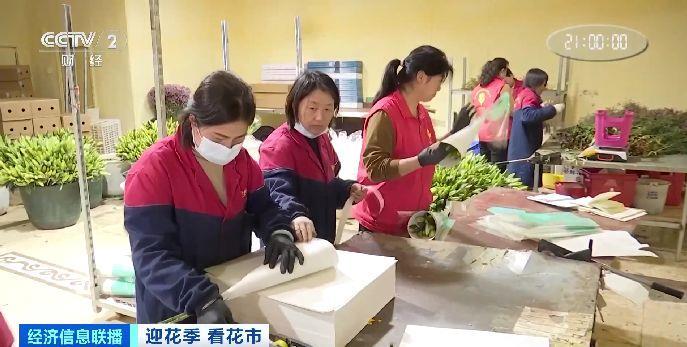 我国云南省气候温文、日照足够、雨量充分,是重要的花卉出产和出口基地。眼下云南的鲜花不只供给国内商场,还远销海外,本年以来出口继续炽热。在8℃到10℃的室温内,包装工人们正在对一捆捆行将发货的鲜花做最终
...[详细]
我国云南省气候温文、日照足够、雨量充分,是重要的花卉出产和出口基地。眼下云南的鲜花不只供给国内商场,还远销海外,本年以来出口继续炽热。在8℃到10℃的室温内,包装工人们正在对一捆捆行将发货的鲜花做最终
...[详细]
-
未婚女子退税时发现自己被成婚8年,人证不一致怎么完结挂号?律师剖析多个疑点
 7月10日,云南省文山市的罗女士在网上发文称,处理退税时发现自己8年前在安徽马鞍山“被成婚”了,但她与成婚挂号证上的“老公”彻底不认识,也从未去过安徽。7月12日,安徽含山县警方通报:7月11日晚,该
...[详细]
7月10日,云南省文山市的罗女士在网上发文称,处理退税时发现自己8年前在安徽马鞍山“被成婚”了,但她与成婚挂号证上的“老公”彻底不认识,也从未去过安徽。7月12日,安徽含山县警方通报:7月11日晚,该
...[详细]
-
 7月16日,中国队球员庆祝成功。新华社记者 梁旭 摄。当日,在深圳举办的2025世界篮联女篮亚洲杯小组赛中,中国队85比51打败新西兰队。7月16日,中国队球员张子宇中)在赛后与对方球员致意。新华社记
...[详细]
7月16日,中国队球员庆祝成功。新华社记者 梁旭 摄。当日,在深圳举办的2025世界篮联女篮亚洲杯小组赛中,中国队85比51打败新西兰队。7月16日,中国队球员张子宇中)在赛后与对方球员致意。新华社记
...[详细]
-
这项目标提早完成!我国每万人口高价值发明专利拥有量已达15.3件
 人民网北京7月17日电 记者乔业琼)今天,国新办举办“高质量完结‘十四五’规划”系列主题新闻发布会,介绍“十四五”时期知识产权强国建造新进展新成效。国家知识产权局战略规划司司长梁心新表明,“每万人口高
...[详细]
人民网北京7月17日电 记者乔业琼)今天,国新办举办“高质量完结‘十四五’规划”系列主题新闻发布会,介绍“十四五”时期知识产权强国建造新进展新成效。国家知识产权局战略规划司司长梁心新表明,“每万人口高
...[详细]
-
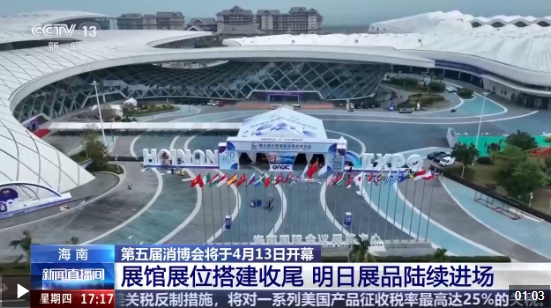 第五届中国世界消费品博览会,将于4月13日在海南开幕,本届消博会主题为“同享敞开机会,共创美好生活”。现在,展馆展位建立作业已进入结尾,估计明日11日)展品连续出场安置。展馆展位建立收尾 明日展品连续
...[详细]
第五届中国世界消费品博览会,将于4月13日在海南开幕,本届消博会主题为“同享敞开机会,共创美好生活”。现在,展馆展位建立作业已进入结尾,估计明日11日)展品连续出场安置。展馆展位建立收尾 明日展品连续
...[详细]
-
223分上岸复旦的网红“迅猛龙”回应“考研是炒作”质疑:这办法太笨且危险高
 本年4月,具有600万粉丝的网红“迅猛龙特雷莎”被复旦大学拟选取为研究生,书面考试223分,面试85分,总成果79.67分,复试院系为管理学院。该音讯敏捷引发全网热议,从颜值主播到上岸复旦MBA,一些
...[详细]
本年4月,具有600万粉丝的网红“迅猛龙特雷莎”被复旦大学拟选取为研究生,书面考试223分,面试85分,总成果79.67分,复试院系为管理学院。该音讯敏捷引发全网热议,从颜值主播到上岸复旦MBA,一些
...[详细]

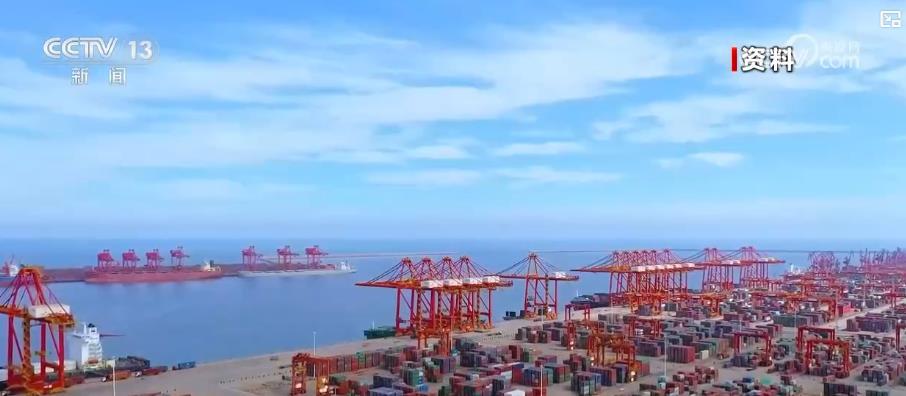 立异赋能 敞开拓路!我国外贸耐性不减 进出口完成平稳局面
立异赋能 敞开拓路!我国外贸耐性不减 进出口完成平稳局面 《费加罗的婚礼》将在全国近百家影剧院同步直播
《费加罗的婚礼》将在全国近百家影剧院同步直播 黄石临空建造办理有限公司为建造者“送清凉”
黄石临空建造办理有限公司为建造者“送清凉”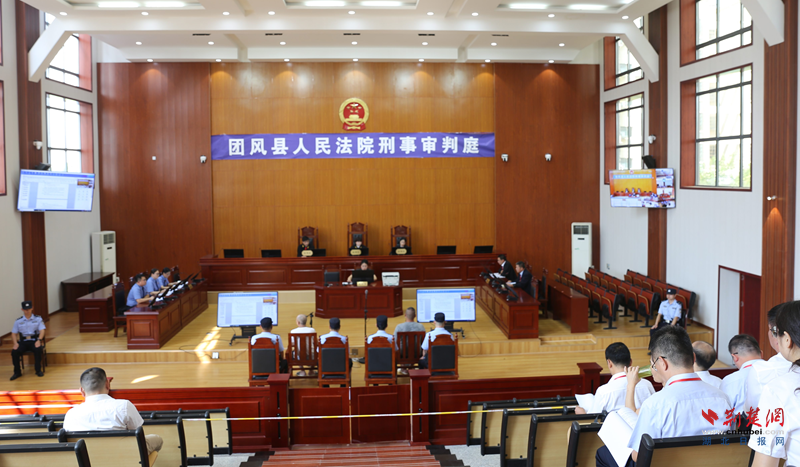 团风法院展开“庭审大比武”
团风法院展开“庭审大比武”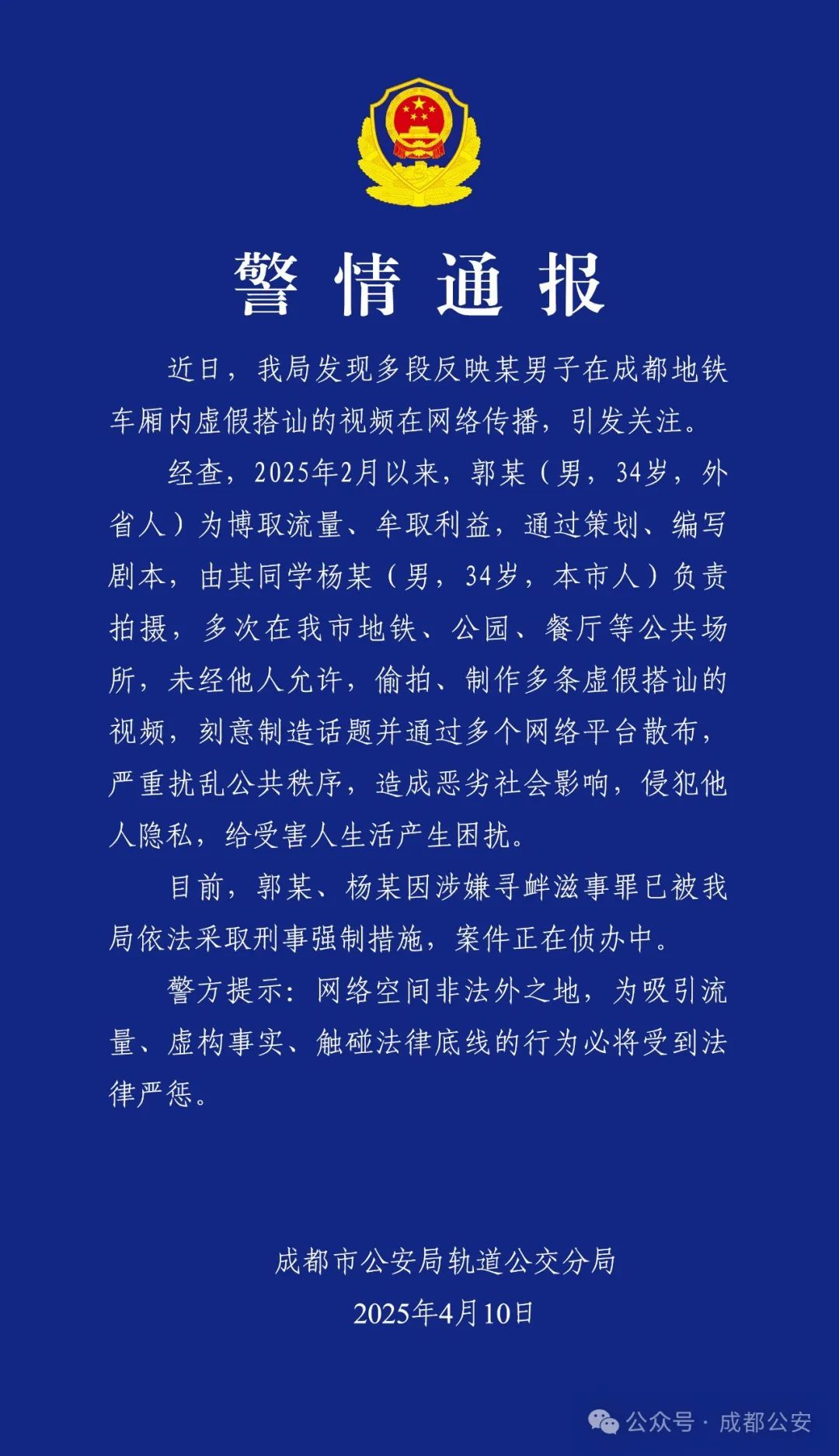 成都警方:两男人摆拍搭讪同性视频被采纳刑事强制
成都警方:两男人摆拍搭讪同性视频被采纳刑事强制